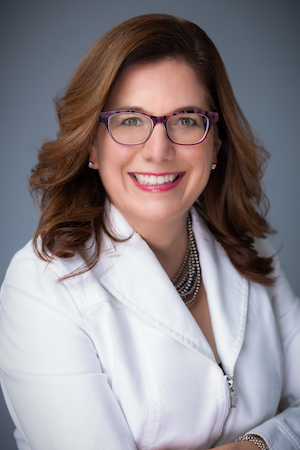By Amy Schabacker Dufrane
Let’s say it’s 11 p.m. on a Saturday night and you suddenly notice a rash above your left eyebrow. What’s your immediate reaction?
Before such options existed, you probably put a light coat of cream on the area and went to bed. Fast-forward to the modern age of technology – also known as Dr. Google. Instead of getting a good night’s sleep, you spend an hour online reading every obscure mention of skin rashes and are convinced you have a serious disease. And, by morning, the rash is gone.
This is a fairly innocuous example of a growing issue in our society. The importance of expertise, specifically formal training or education with credentials to exercise the expertise. One of the areas it’s most apparent – and where a lack of it is most risky – is human resources.
I started thinking about this topic after reading a book titled “The Death of Expertise.” Despite the dramatic title, it’s actually a strong argument for why we need to value our experts and the role they hold in our society. I’ll share some of the important points here, especially as they relate to our very important function on an organizational, professional and person level.
The author – Tom Nichols – assesses the U.S. as a country obsessed with ignorance as a virtue. The very idea made me bristle but after reflecting on his point, I can see why he made it. Rejecting the advice of others asserts autonomy, which is a characteristic that we value and hold dear. Think back to when you hung on your medical doctor’s every word. Now, one can easily be convinced of catastrophic illness by entering a few words into search. Egos dominate common sense. Some take this so far as to dismiss indisputable scientific fact.
The good news is that the world has become more accessible. Social changes have broken down barriers and education empowers those who were previously underrepresented. Communications options connect us 24/7 without additional costs and learning is almost always at our fingertips.
Of course, many of these changes and newfound accessibility are positive strides forward. Yet, without reliance on experts, we cannot advance our knowledge with confidence. Without formal mechanisms through which we deepen our expertise, we create risk. One such example that elicits a visceral response: would you want to get in an elevator to the 86th floor of a skyscraper that wasn’t certified by an expert? Of course not. You also want assurances that the building was designed by an architect that specializes in such structures, as well as a city inspector who made sure the final product aligns with code requirements.
When it comes to HR, amassing expertise carries the same gravitas. After all, we’re in the people business: their individual wellbeing, their employer’s impact on their families, career opportunities for advancement, and even generational wealth. The sway of HR has many forms and shouldn’t be left up to serendipity.
The book’s author defines credentials as “the imprimatur of the institutions that bestow them.” It’s why we take our role at HRCI so seriously. Having the responsibility of being the gold-standard in an industry that touches so many lives means you need to back your certification programs with the best experts in the field. Pilots fly planes, doctors help patients get better, HR professionals ensure a positive employee experience while supporting organizational goals.
How can you tell when your hierarchy of expertise is lacking? One such example is confirmation bias. While we might not have had a name for it, we’ve all experienced it before. It’s the hiring manager who insists the best candidates are only those graduates of a certain school or “already knows” that working mothers won’t work out because of competing demands on their time. It’s the employee who doesn’t assimilate into the team because “people never like me.” It’s the benefits administrator who doesn’t suggest contemporary offerings because – after all – “we always do the same thing every year.”
Confirmation bias repeatedly validates limitations. It’s what prevents diversity and inclusion programs from advancing. Trained HR professionals recognize the pattern. They can also evaluate and navigate clearly, defining patterns and addressing strategies to instrument change.
Being an expert has another aspect that might not be readily apparent. As HR professionals who are certified in our profession, we need to own our expertise and hold each other accountable. Being active listeners – and learners – in our respective organizations is a starting point. As HR leaders, we need to understand how pervasive our influence is on our workforces and why mastery of our skills is so crucial. While we are not always responsible for directly implementing our recommendations, we still need to be fully prepared to help guide change from concept through execution.
Misinformation undermines employer brands, corporate cultures and employee engagement. In turn, it can weaken the core of any organization. HR professionals need to be ready to manage a wide range of questions and field unforeseen issues on a daily basis. Cultivating and possessing deep HR expertise enables HR to counsel on strategic and tactical initiatives including workforce strategy, DEIB and the employee experience. In today’s dynamic world of work, HR needs to commit to continuous learning in order to gain expertise and maintain expert status. Given the plethora of regulatory and compliance requirements coupled with the dearth of qualified talent in most sectors, the stakes are too high to leave being an expert to chance.
Amy Schabacker Dufrane, Ed.D., SPHR, CAE, is CEO of HRCI® — HR Certification Institute, and is the founder and CEO of HRSI — HR Standards Institute, where she is responsible for driving and disrupting the conversations about building high-performing, strategic HR teams. An engaging thought leader at the intersection of talent strategy and continuous learning, Dr. Dufrane is an award-winning leader and celebrated keynote speaker on the human side of successful business strategy in the 21st century.

